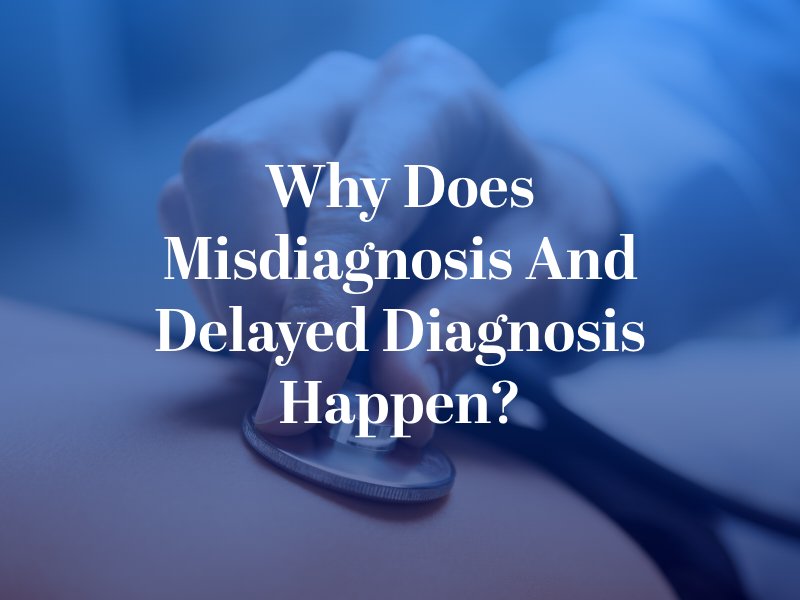The Impact of Misdiagnosis and Delayed Diagnosis
We trust our medical professionals. Even though we know that doctors and other medical professionals don’t get it right all the time, we trust that they will do their best with the information that they have. Unfortunately, there are times when medical provider negligence can lead to a misdiagnosis of a critical condition, causing significant harm to a patient.
What Is Misdiagnosis and Delayed Diagnosis?
Misdiagnosis and delayed diagnosis refer to two different types of diagnostic errors that can affect a patient’s health and outcome:
- Misdiagnosis occurs when a doctor or another type of provider diagnoses a patient with the wrong condition. As a result, the patient may receive unnecessary treatments or fail to receive the appropriate care for their actual condition, which can worsen the underlying health issue.
- Delayed diagnosis happens when a healthcare provider takes too long to diagnose a condition accurately. While the diagnosis may eventually be correct, the delay can lead to the condition worsening, sometimes reducing treatment options or effectiveness.
Both types of diagnostic errors can lead to complications, more extensive treatments, and emotional distress for patients and their families. When these errors are the result of negligence, they can file a medical malpractice claim with the help of a Chicago medical malpractice lawyer

Why Misdiagnosis and Delayed Diagnosis Happen
Medical providers are often under considerable pressure, juggling numerous patients and complex medical cases. However, certain errors, often preventable, can increase the risk of misdiagnosis or delayed diagnosis. Common causes include:
- Incomplete patient evaluations. Sometimes, medical professionals rush through evaluations or fail to take a thorough medical history, missing essential information that could lead to an accurate diagnosis.
- Failure to order appropriate tests. Diagnostic tests can provide critical information. Failing to order the correct tests may lead to incorrect assumptions and a missed or delayed diagnosis.
- Misinterpreting test results. Even when tests are ordered, interpreting the results accurately is crucial. Misreading or overlooking abnormal findings can prevent timely intervention.
- Cognitive biases. Cognitive biases, such as anchoring or confirmation bias, can affect how a provider interprets symptoms, leading them to focus on a specific diagnosis even when other possibilities exist.
The Emotional and Physical Impact of Misdiagnosis and Delayed Diagnosis
The effects of a misdiagnosis or delayed diagnosis can be life-changing. Beyond the physical harm, many patients experience intense emotional and mental distress as they deal with the consequences of these errors. Some of the ways diagnostic errors can impact patients include:
- Worsening of the condition. Without timely treatment, many conditions can progress, sometimes reaching stages where treatment becomes more difficult or less effective. For conditions like cancer, a delay can mean the difference between life and death.
- Unnecessary treatments and side effects. A misdiagnosis often leads to treatments that the patient does not need, which can cause painful side effects, additional expenses, and, in some cases, complications from medications or surgeries.
- Emotional trauma and mental health challenges. Living with a serious condition is hard enough, but the added stress of a missed diagnosis can create feelings of anxiety, depression, and betrayal. Patients may lose trust in medical providers, complicating future medical relationships.
- Financial burdens. A misdiagnosis or delay often leads to additional medical bills, lost income from missed work, and costs associated with long-term care. These financial impacts can strain both patients and their families.
Seeking Justice and Support After a Diagnostic Error
Misdiagnosis and delayed diagnosis are not just medical mistakes. They are events that can alter lives. If you or a loved one has been impacted by a diagnostic error, you may be able to pursue compensation to help cover medical expenses, lost income, pain and suffering, and other damages. Compensation cannot change what has happened, but it can help relieve some of the burdens that come with the fallout of a medical error.
